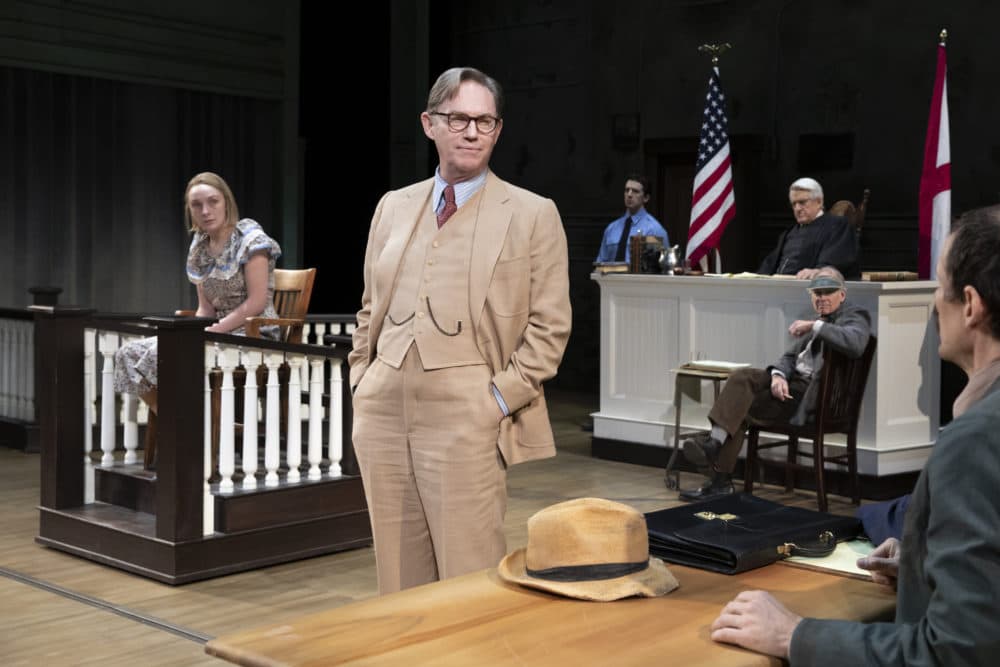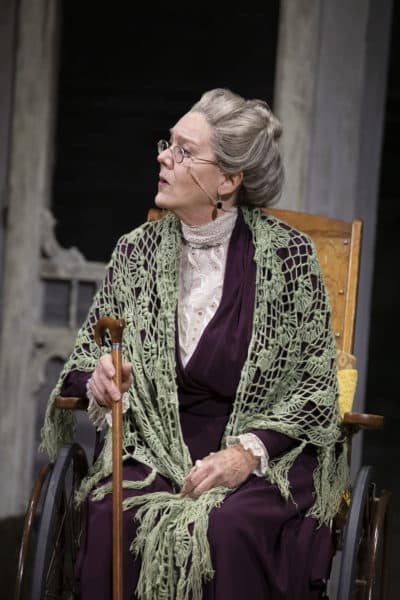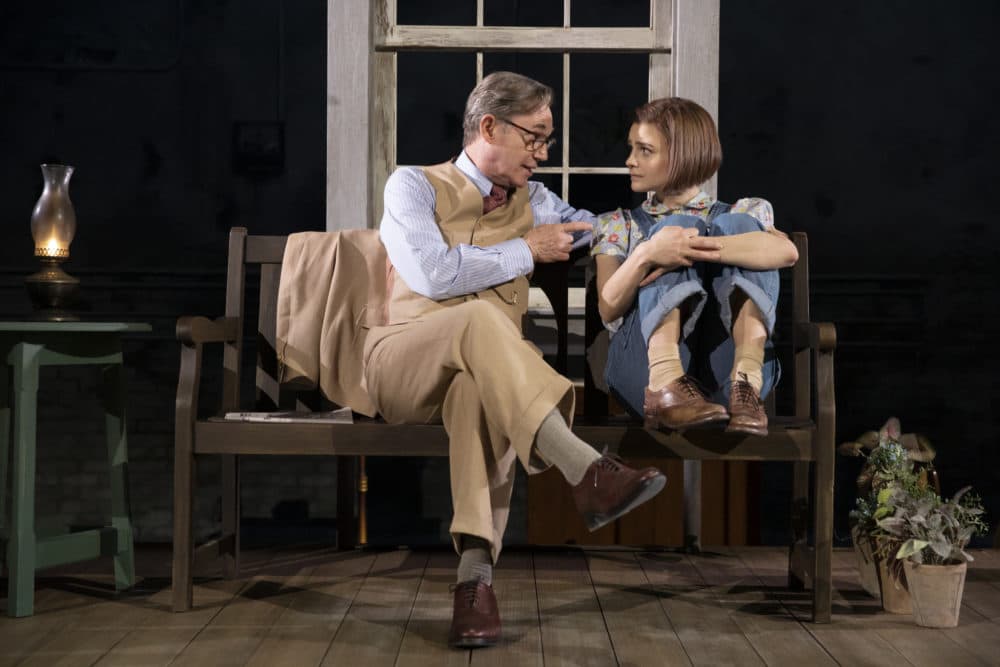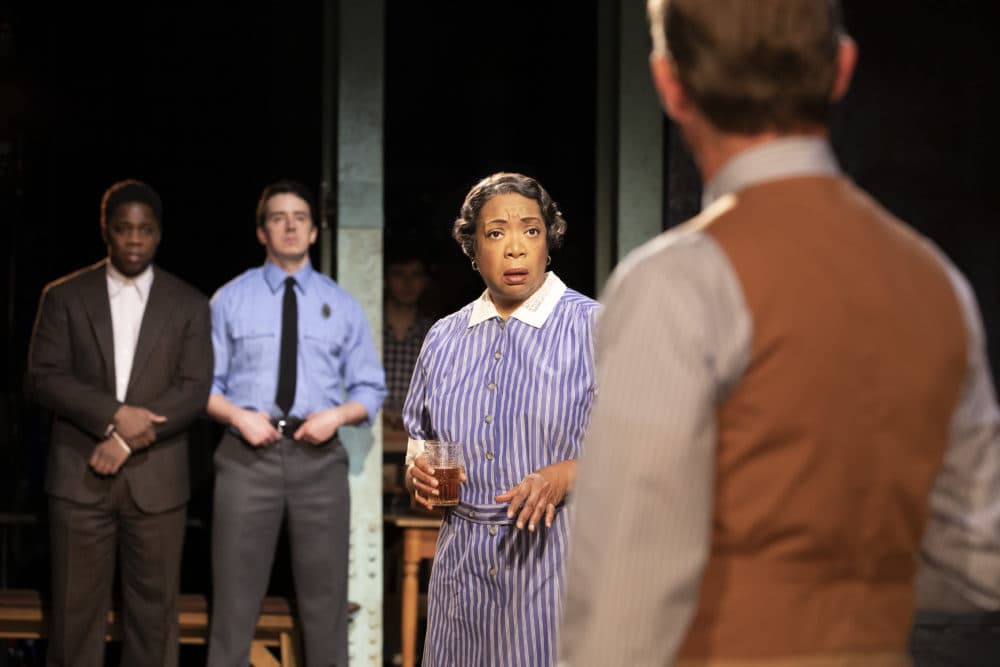Advertisement
Review
Richard Thomas shines in 'Mockingbird' at Opera House. Aaron Sorkin's script...not so much

Award-winning actor Richard Thomas doesn’t just act — he embodies his characters, avoiding even a hint of artifice.
That’s critically important in "Harper Lee's 'To Kill a Mockingbird'" (presented by Broadway in Boston at the Citizens Bank Opera House through April 17) because Emmy and Academy award-winning screenwriter Aaron Sorkin’s problematic deconstruction of the classic novel for his theatrical adaptation requires Thomas, as the larger-than-life Atticus Finch, to serve as the magnet that pulls all the pieces back together.
Lee’s novel, required reading in high schools, focused on Jean Louise (“Scout”) Finch and the long and languorous summers of her Alabama childhood when the realities of racism and prejudice shook her little town of Maycomb. When her father, Atticus, is chosen to defend a Black man falsely accused of raping a white woman, assumptions, resentments and injustice prevail, despite the obvious facts and Atticus’ conviction that most people in Maycomb are honest and decent. In a subplot, Scout, her brother Jem, and a summer visitor named Dill learn a lesson of tolerance when they make assumptions about their mysterious neighbor, “Boo” Radley.
Gregory Peck’s performance in the 1962 film made Atticus a truly noble defender of the innocent, including his children and the defendant in trial. Although that approach feels painfully paternalistic today, it was leavened by the knowledge that the storyteller was his young daughter, who idolized him. (In a nod to the film, Mary Badham, who created the role of Scout, plays the cranky old neighbor in this production). But Sorkin (“A Few Good Men,” “Being the Ricardos,” “The Social Network” and TV’s “The West Wing”), whose script is oddly labeled “a new play,” shifts the focus more heavily to Atticus and his moral struggles and personal foibles. The play is still narrated by the children — with Scout, Jem and Dill all addressing the audience and tossing storytelling duties back and forth like a hot potato — but Atticus is always front and center. That realignment, however, removes some of the sincerity of a young child’s growing awareness of prejudice and its consequences.

Some of the praise for Peck’s film performance came from his ability to express so many emotions without words. To his credit, Thomas appears remarkably at ease, especially with his patient and wise interactions with his children, which communicate easy affection. But Sorkin isn’t interested in subtlety. It’s not enough for Atticus to remind us that there is goodness in everyone, he must repeat it at every opportunity. As “the most honest and decent man in Maycomb,” Atticus must be placed on a ridiculously high pedestal — he reminds his neighbors that he is the first person Jem looks to and he must set an example for his son (um, what about Scout?). But in Act 2, he must be knocked off that pedestal and learn from his mistakes. That he learns his lesson from Calpurnia (Jacqueline Williams), the family’s housekeeper, would be appropriate, except that Sorkin creates her as a two-dimensional stereotype that makes Atticus’ apology to her feel grating rather than genuine.
Still, Thomas holds our attention, yanking those random story pieces together through sheer force of will, finding humanity, and opportunities for nuance whenever possible. He is ably assisted by Melanie Moore as the tomboy Scout, Justin Mark as Jem, and Steven Lee Johnson as their friend Dill. The scenes in which these characters speak honestly to each other and with their father are the highlights of the play. But Sorkin never lets those relationships develop, shifting to have the children directly address the audience, breaking the spell of the world of the play.
Sorkin does offer Thomas an opportunity for an angry courtroom explosion that is dramatic and powerful, but to be honest, feels like it was lifted from Sorkin’s “A Few Good Men.” To his credit, Thomas builds to an effective crescendo that reveals Atticus’ frustration. But it does feel a bit out of character for his veneer of goodness to shatter so completely, especially when the monologue focuses on what made the accused, Tom Robinson (Yaegel T. Welch) crack.

Sorkin has said that he reorganized the story because he felt the trial was the story’s dramatic heart. But by making that choice, he sidelines the coming-of-age experiences that make some of the heavy-handed “lessons” palatable. In addition, by making the courtroom scenes, and Atticus’s role there the focus, the audience is asked to endure endless scene changes in which the young narrators must vamp until pieces fly into place. (Jem fills time with an anecdote about an Auburn-Georgia Tech football game to illustrate the unexpected turn of the tide against Tom Robinson).
Miriam Buether’s courtroom and Finch home set designs hover in a kind of imaginative limbo, despite the very realistic witness seat and porch swing. That supports Bartlett Sher’s carefully tightly choreographed blocking — if two children cross stage left, one must move stage right; when Atticus steps forward, they must step back. Adam Guettel’s musical score offers a pleasant background and helps to keep the show from dragging, but the insistence on stepping out of the action to advance the story deflates any dramatic tension that has been building.
Rather than re-imagine “To Kill a Mockingbird” for the 21st century, this new play only offers selected highlights, surrounded by pedantic statements like “We can’t go on like this,” and “let’s hasten the change.” The best theater doesn’t have to tell us, it simply shows us and lets us decide.

"Harper Lee's 'To Kill a Mockingbird'" continues at the Citizens Bank Opera House through April 17.